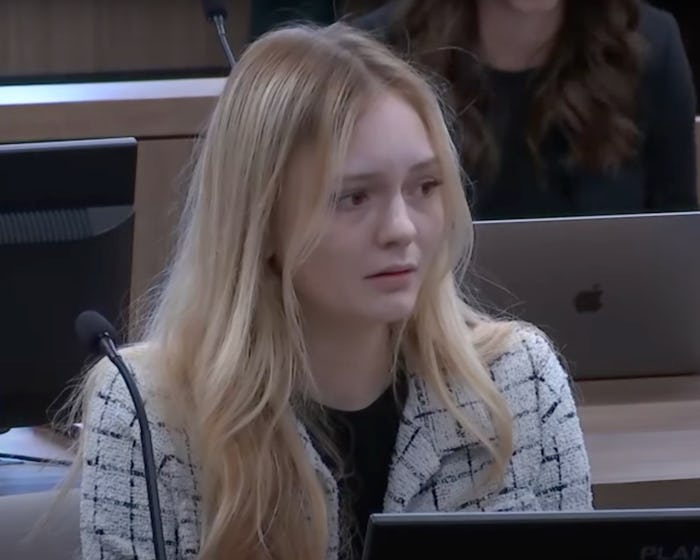News
Jury Awards Family At Center Of Netflix's Take Care Of Maya Doc $211 Million
After eight weeks of trial and testimony, a jury found Johns Hopkins All Children’s Hospital liable for a list of claims.
Trigger Warning: This article mentions suicide.
The story of the Kowalski family unfolded in Netflix’s documentary Take Care of Maya, released in June 2023. In it, Maya Kowalski, now 17, recounts her childhood experiences battling complex regional pain syndrome (CRPS), during which she went undiagnosed and misunderstood for years. On Nov. 9, after eight weeks of trial and testimony, the jury found Johns Hopkins All Children’s Hospital liable for a list of claims made against them by the Kowalski family. The hospital must now pay them $211 million.
The family — made up of Maya, her father, Jack, and her brother, Kyle — sued All Children’s in 2018 for $220 million. All three of them cried in the Sarasota County court room as the jury read the verdict on Thursday. Johns Hopkins All Children’s Hospital was found liable for the following civil claims:
- False imprisonment of Maya Kowalski
- Battery of Maya Kowalski
- Medical negligence
- Fraudulent billing of Jack Kowalski
- Inflicting emotional distress on Beata Kowalski
- Wrongful death claim for the estate of Beata Kowalski
- Intentionally inflicting emotional distress on Maya Kowalski
Part of Maya’s journey seeking answers about her chronic pain included a stay at Johns Hopkins All Children’s Hospital in St. Petersburg, Florida. Her father took her to the emergency room there in 2016 during an episode of extreme pain.
There, staff questioned the severity of Maya’s condition and were concerned about the amount of ketamine her father said she had been receiving to treat her discomfort. Hospital employees alerted child welfare authorities and expressed concern that Maya might be a victim of Munchausen syndrome by proxy, a mental illness in which a caregiver creates the appearance of an illness in a child or someone in their care, at the hands of her mother, Beata. The Kowalskis — including Maya — have maintained that this was not true.
The state took custody of Maya, while a judge enacted a a no-contact order between her and Beata. When Maya was released from the hospital into her father’s custody, she was not allowed to see her mother. During a court hearing about the matter, Beata requested the opportunity to hug her daughter once and was denied. In January 2017, Beata Kowalski died by suicide after 87 days without her daughter and child abuse allegations pending. In Take Care of Maya and in court, the Kowalskis said her emotional distress — and ultimately her death — were a direct result of the actions of Johns Hopkins All Children’s Hospital.
Even after the verdict, the defense maintains that the hospital was just doing its job — protecting a child they thought might be suffering abuse.
“We thank the jury for their time and attention during this trial and intend to pursue an appeal based on clear and prejudicial errors throughout the trial and deliberate conduct by plaintiff’s counsel that misled the jury,” says Howard Hunter, an attorney from Hill Ward Henderson who represented Johns Hopkins All Children’s Hospital in this case, in a statement emailed to Romper. “The evidence clearly showed that Johns Hopkins All Children’s Hospital followed Florida’s mandatory reporting law in reporting suspected child abuse and, when those suspicions were confirmed by the district court, fully complied with Department of Children and Families (DCF) and court orders. We are determined to defend the vitally important obligation of mandatory reporters to report suspected child abuse and protect the smallest and most vulnerable among us. The facts and the law remain on our side, and we will continue to defend the lifesaving and compassionate care provided to Maya Kowalski by the physicians, nurses and staff of Johns Hopkins All Children’s Hospital and the responsibility of all mandatory reporters in Florida to speak up if they suspect child abuse.”
If you or someone you know is experiencing suicidal thoughts, call or text 988 to contact the 988 Suicide & Crisis Lifeline, which provides free 24/7 support. You can also reach out to the Trans Lifeline at 1-877-565-8860, the Trevor Lifeline at 1-866-488-7386, or to your local suicide crisis center.
This article was originally published on
